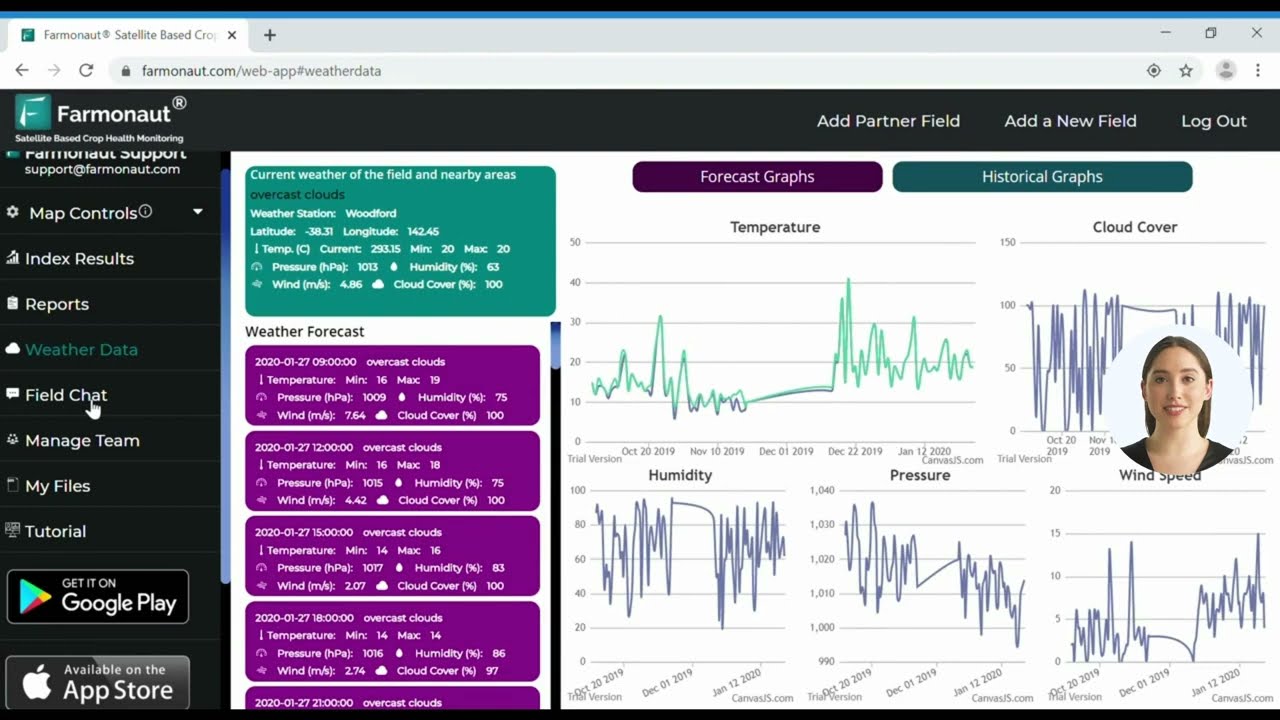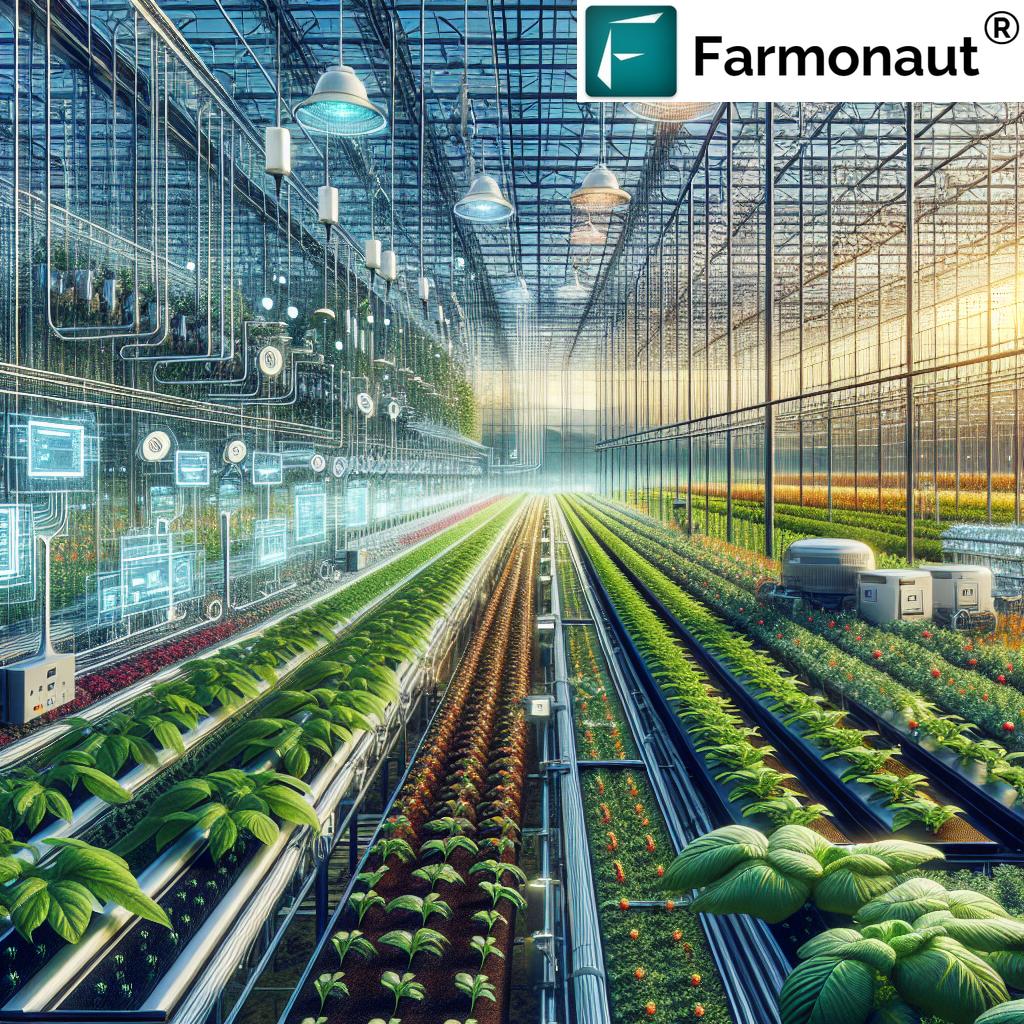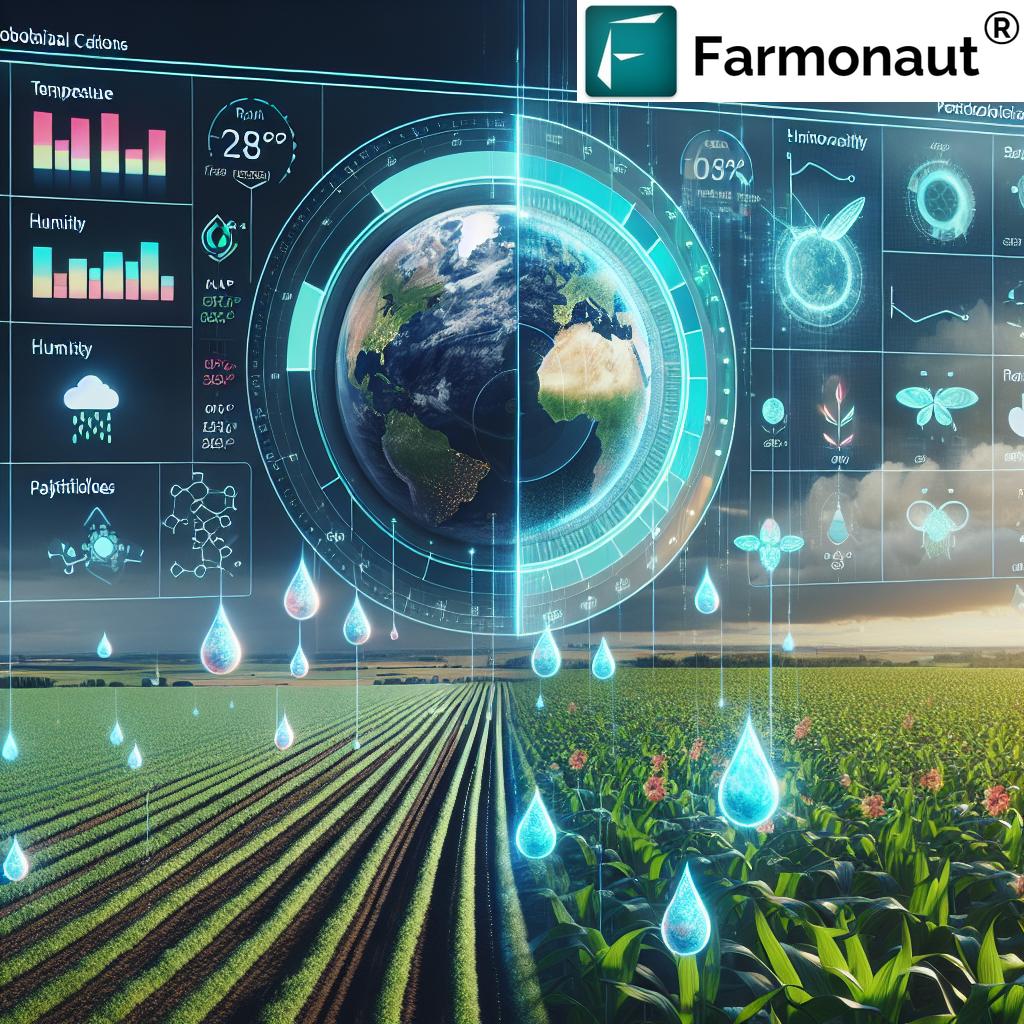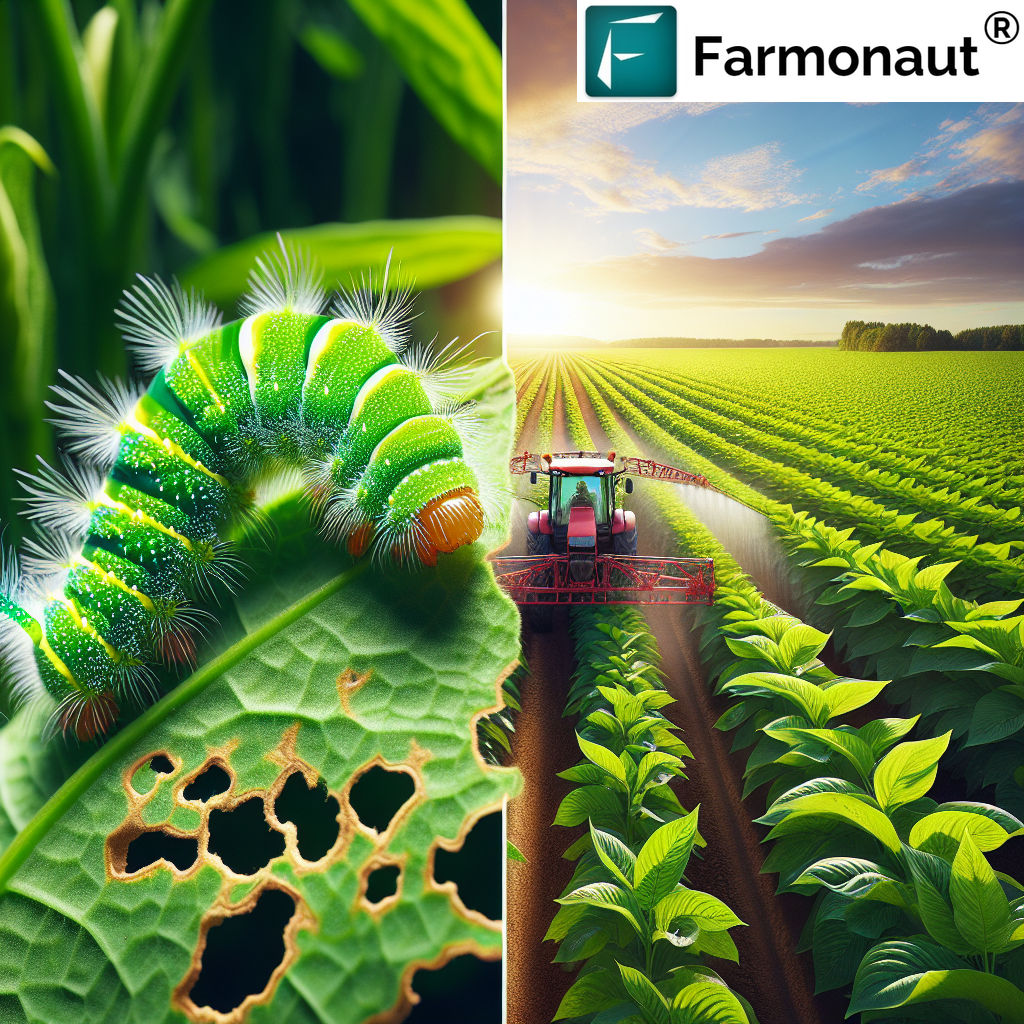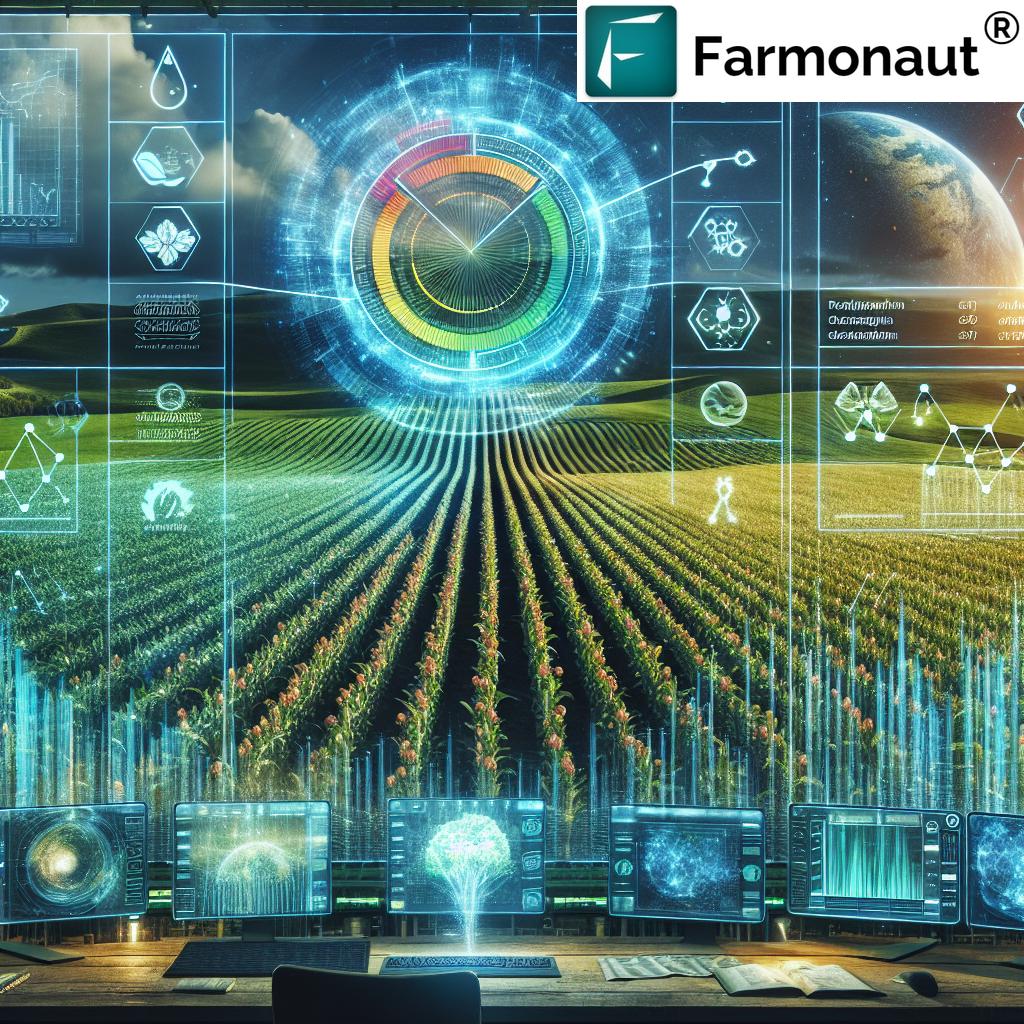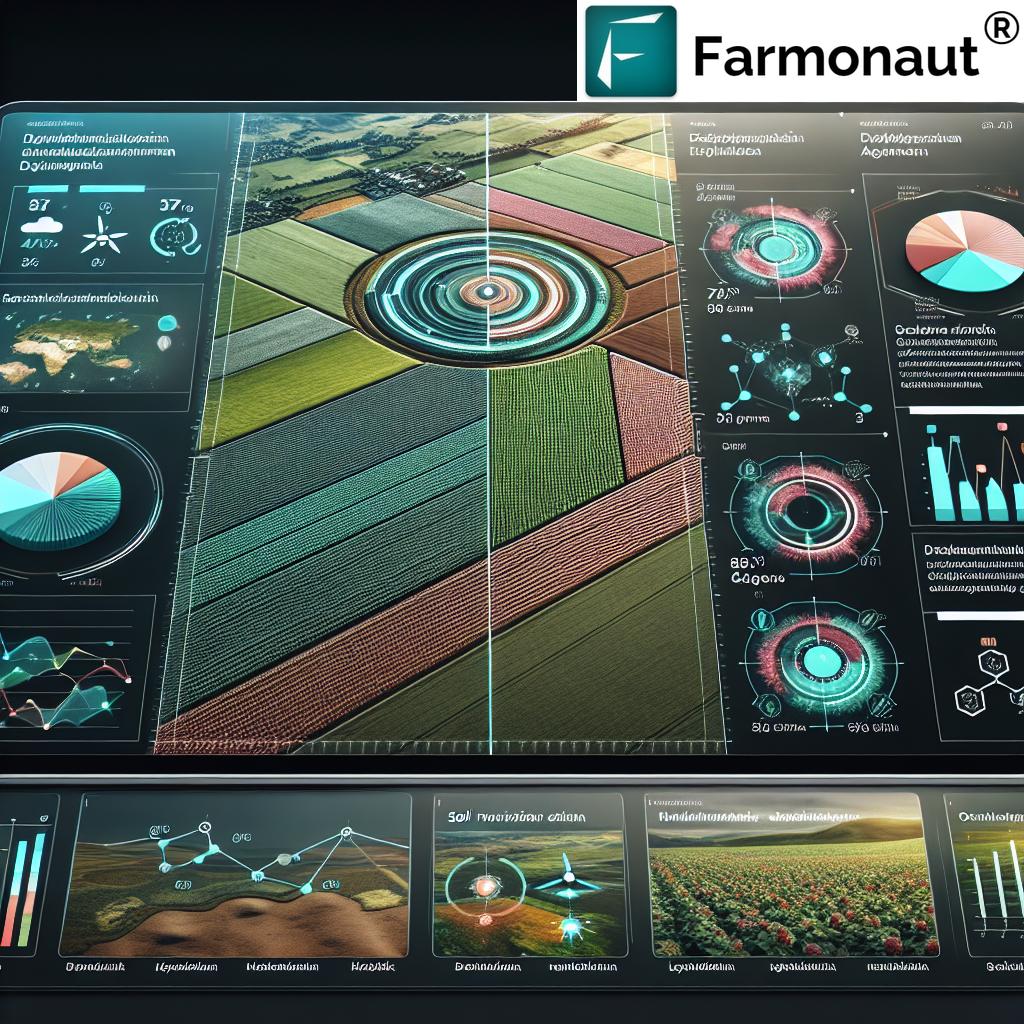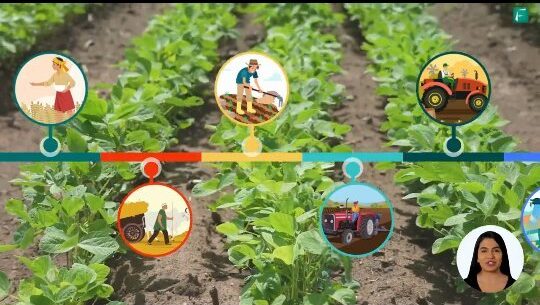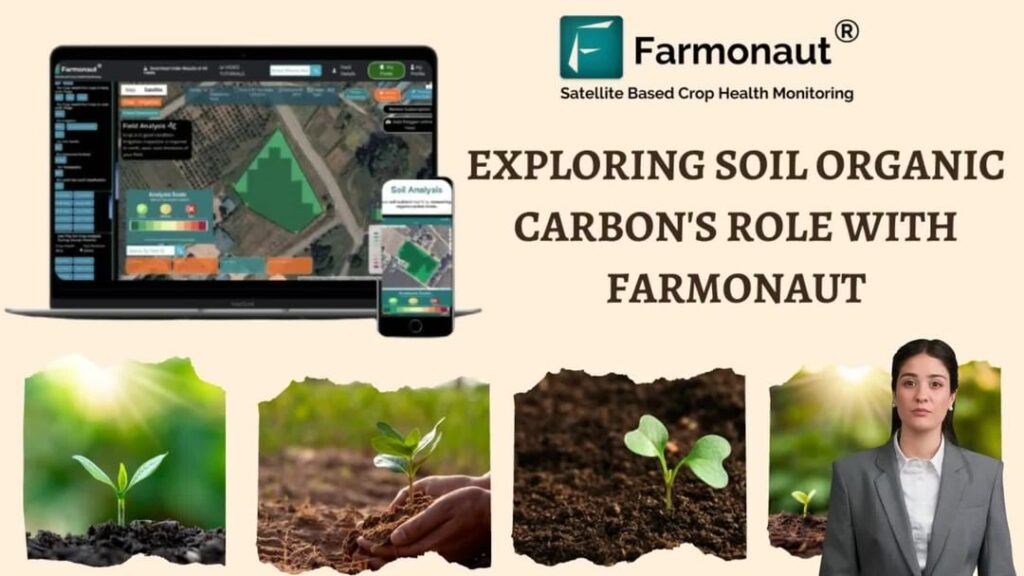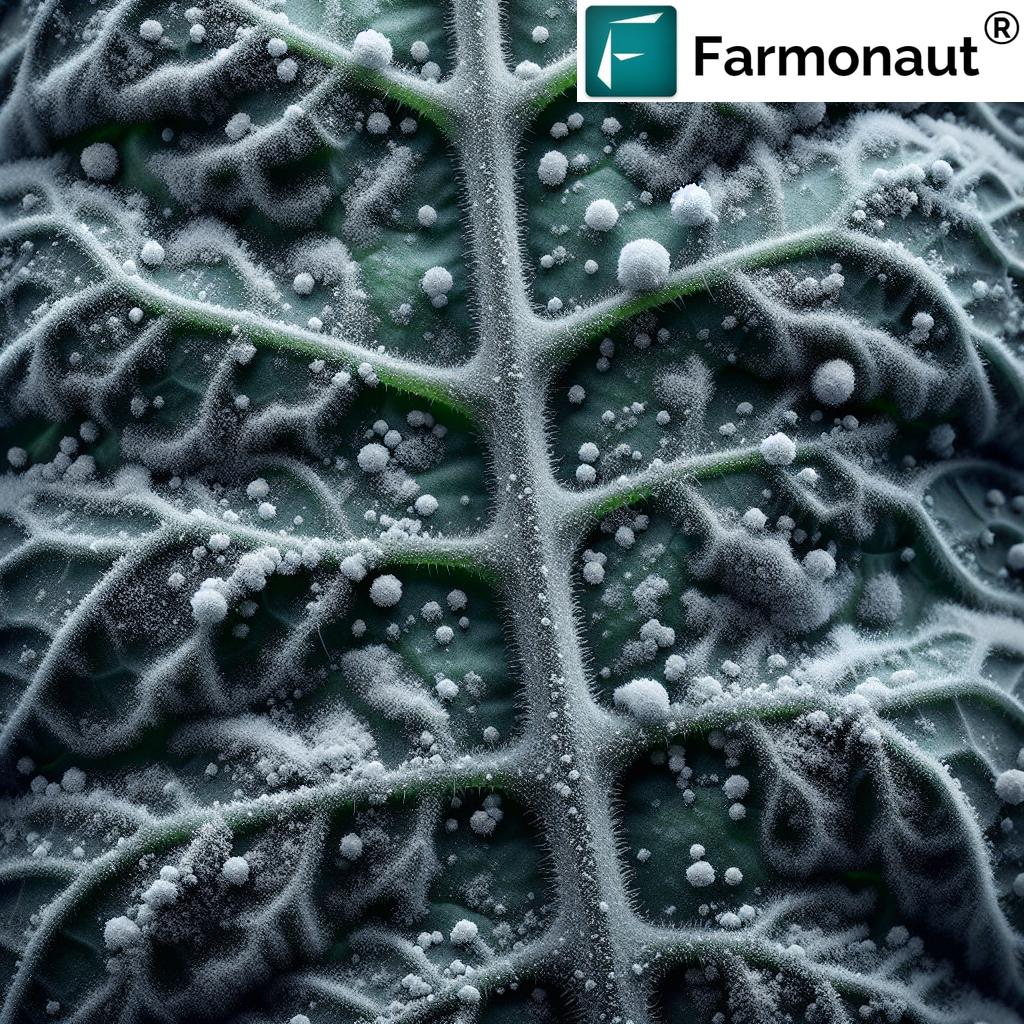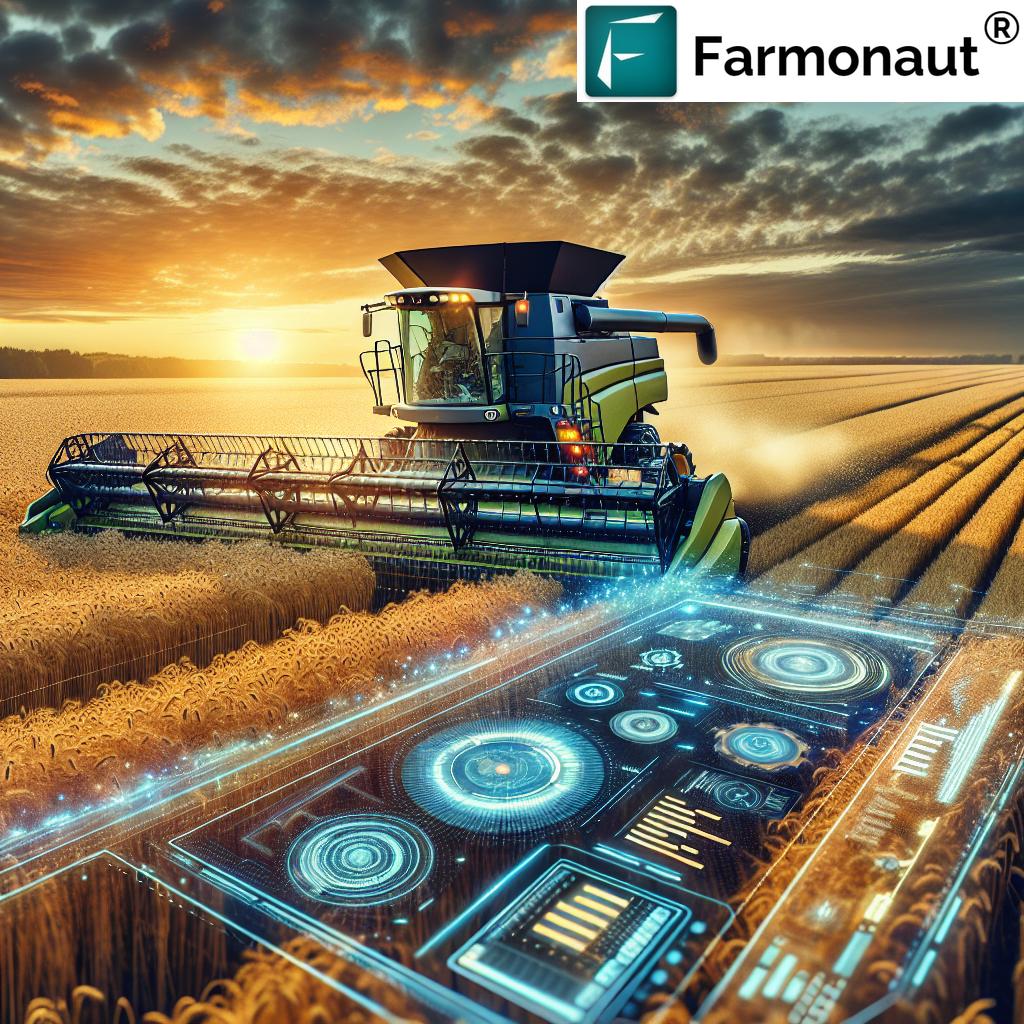Revolutionizing Agriculture: How Precision Irrigation Systems Boost Crop Yields and Water Efficiency
“Precision irrigation systems can reduce water usage by up to 50% compared to traditional irrigation methods.”
In the ever-evolving landscape of modern agriculture, precision irrigation systems have emerged as a game-changing technology, transforming the way we approach farming and water management. At Farmonaut, we’re at the forefront of this agricultural revolution, leveraging cutting-edge satellite technology and data-driven insights to empower farmers worldwide. In this comprehensive guide, we’ll explore how precision irrigation is reshaping the agricultural sector, boosting crop yields, and significantly enhancing water efficiency.
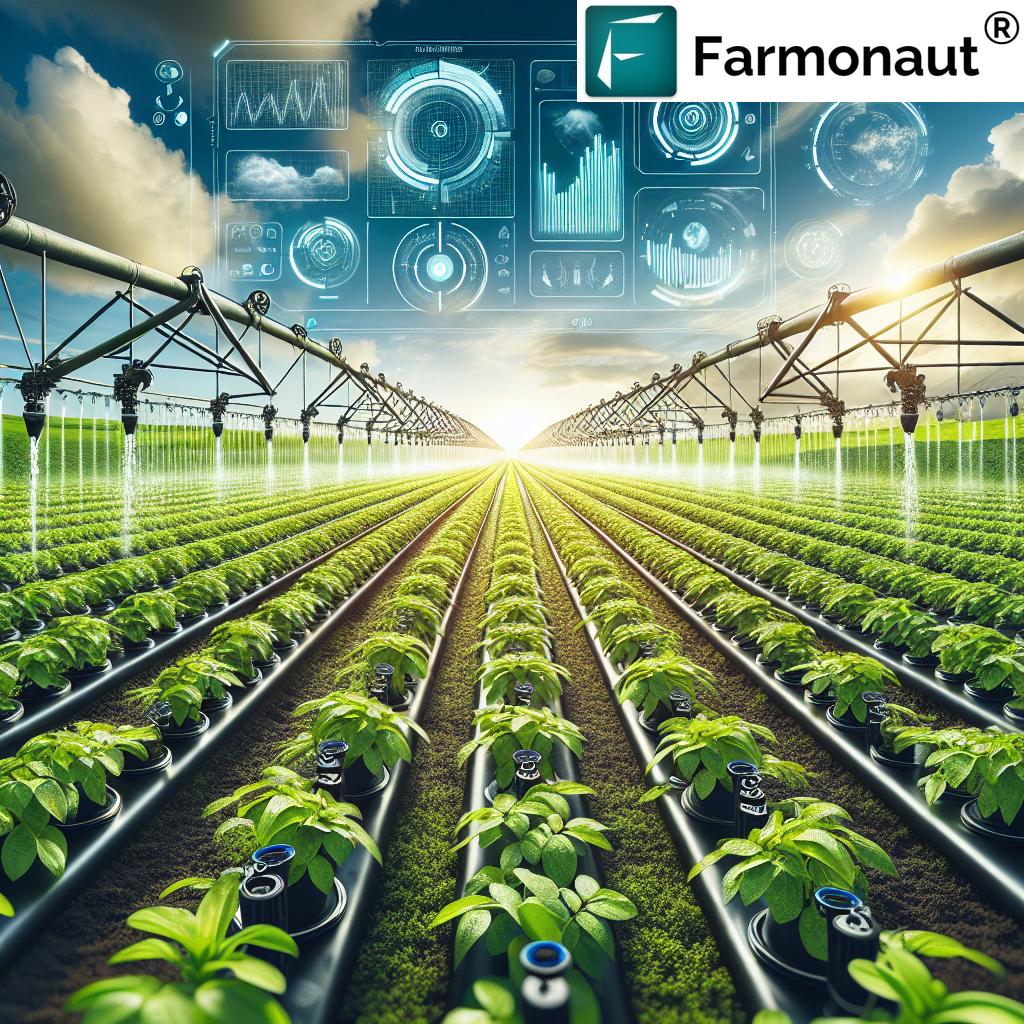
Understanding Precision Irrigation Systems
Precision irrigation systems represent a paradigm shift in agricultural water management. These advanced systems utilize a combination of sensors, data analytics, and automation to deliver water and nutrients to crops with unprecedented accuracy. Unlike traditional irrigation methods that often result in overwatering or uneven distribution, precision irrigation ensures that each plant receives exactly what it needs, when it needs it.
Key components of precision irrigation systems include:
- Soil moisture sensors
- Weather stations
- GPS-guided irrigation equipment
- Smart control valves
- Data management software
By integrating these elements, precision irrigation systems can optimize water usage, reduce labor costs, and significantly improve crop health and yields.
The Benefits of Water-Efficient Farming Techniques
Implementing water-efficient farming techniques through precision irrigation offers numerous benefits for farmers and the environment:
- Water Conservation: Precision irrigation can reduce water consumption by up to 50% compared to traditional methods, addressing water scarcity concerns.
- Improved Crop Yields: By delivering water and nutrients directly to the root zone, these systems can increase crop yields by 20-30%.
- Cost Savings: Reduced water usage and labor requirements lead to significant cost savings for farmers.
- Enhanced Crop Quality: Precise water and nutrient delivery results in healthier plants and higher-quality produce.
- Environmental Benefits: Minimized water waste and reduced runoff contribute to environmental sustainability.
At Farmonaut, we’re committed to making these benefits accessible to farmers of all scales through our innovative satellite-based farm management solutions.
Automated Irrigation Management: The Future of Farming
Automated irrigation management is revolutionizing the way farmers approach water distribution. By leveraging advanced technologies, these systems can:
- Monitor soil moisture levels in real-time
- Adjust irrigation schedules based on weather forecasts
- Detect and alert farmers to system leaks or malfunctions
- Integrate with other farm management tools for comprehensive oversight
The result is a more efficient, data-driven approach to irrigation that minimizes water waste and maximizes crop productivity. Farmonaut’s platform integrates seamlessly with these automated systems, providing farmers with valuable insights and control over their irrigation processes.
Crop Nutrition Optimization Through Precision Irrigation
Precision irrigation systems don’t just manage water; they also play a crucial role in optimizing crop nutrition. Through a process known as fertigation, these systems can deliver nutrients directly to the plant’s root zone along with water. This targeted approach offers several advantages:
- Improved nutrient uptake efficiency
- Reduced fertilizer waste and environmental impact
- Ability to tailor nutrient delivery to specific crop growth stages
- Enhanced crop quality and uniformity
By combining precision irrigation with smart fertigation practices, farmers can significantly boost their crop yields while minimizing input costs and environmental impact.
“Variable Rate Irrigation (VRI) technology can increase crop yields by 20-30% while optimizing water and nutrient distribution.”
Variable Rate Irrigation (VRI): Precision at Its Best
Variable Rate Irrigation (VRI) represents the pinnacle of precision in agricultural water management. This advanced technology allows farmers to apply different amounts of water to various zones within a field based on specific needs. The benefits of VRI include:
- Optimized water use across diverse soil types and topographies
- Ability to avoid overwatering in low-lying areas or underwatering in elevated zones
- Improved crop uniformity and quality
- Reduced energy costs associated with pumping excess water
VRI systems can be integrated with Farmonaut’s satellite-based crop monitoring tools, enabling farmers to make data-driven decisions about irrigation management across their fields.
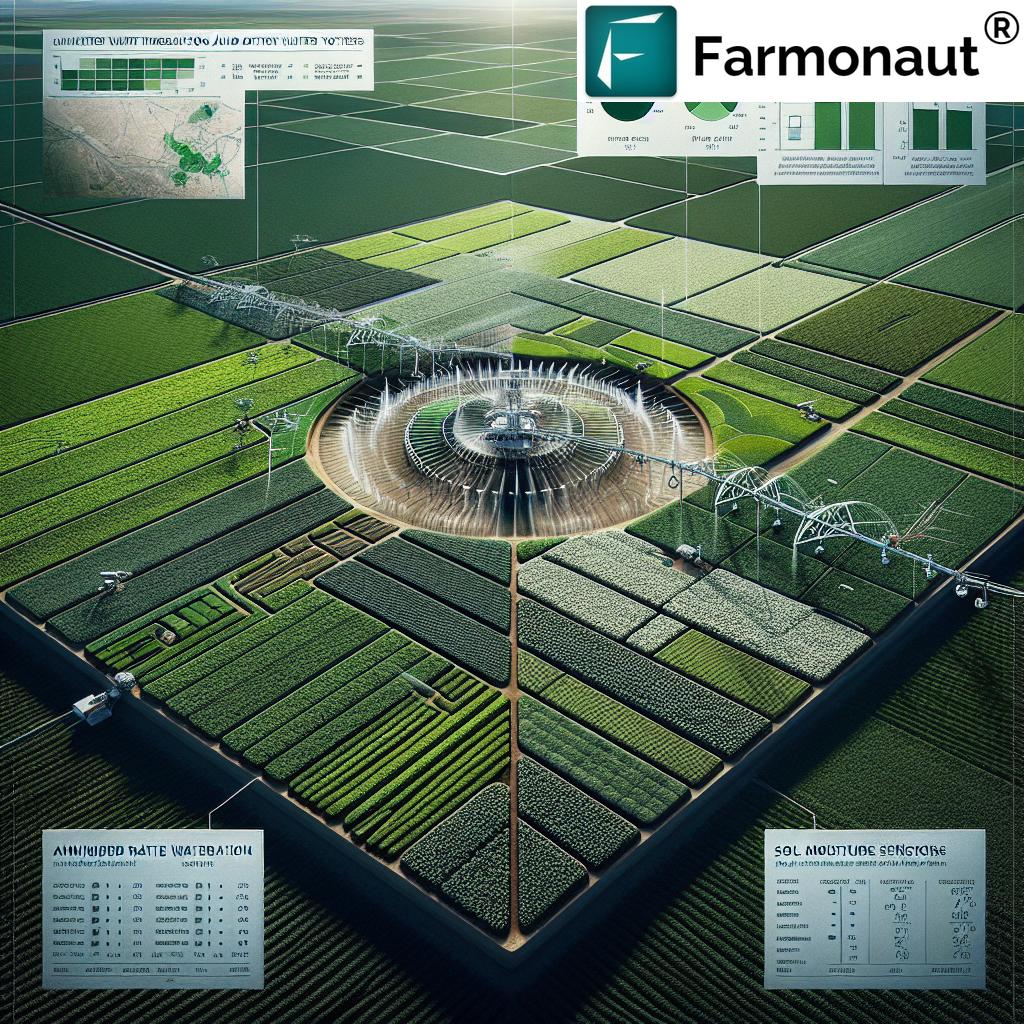
Precision Agriculture Solutions: Beyond Irrigation
While precision irrigation is a cornerstone of modern agriculture, it’s just one component of a broader suite of precision agriculture solutions. At Farmonaut, we offer a comprehensive platform that integrates various precision farming techniques:
- Satellite-based crop health monitoring
- AI-driven advisory systems for crop management
- Weather forecasting and climate analysis tools
- Soil health assessment and management
By combining these technologies with precision irrigation systems, farmers can achieve unprecedented levels of control and efficiency in their operations.
Explore our range of precision agriculture solutions:
Sustainable Agriculture Technology: The Path Forward
As we face growing challenges such as climate change and water scarcity, sustainable agriculture technology becomes increasingly crucial. Precision irrigation systems play a vital role in this sustainable future by:
- Reducing water consumption and preserving this precious resource
- Minimizing chemical runoff and its impact on ecosystems
- Improving soil health through targeted water and nutrient delivery
- Enhancing crop resilience to climate variability
At Farmonaut, we’re committed to developing and promoting sustainable agriculture technologies that help farmers adapt to changing conditions while preserving our planet’s resources.
Water Conservation in Agriculture: A Global Imperative
With agriculture accounting for approximately 70% of global freshwater withdrawals, water conservation in farming is no longer optional—it’s imperative. Precision irrigation systems are at the forefront of this conservation effort, offering solutions that dramatically reduce water usage without compromising crop yields.
Key water conservation techniques in precision irrigation include:
- Drip irrigation systems that minimize evaporation and runoff
- Subsurface irrigation for direct root zone watering
- Smart scheduling based on real-time soil moisture and weather data
- Recycling and reuse of irrigation water
By implementing these techniques, farmers can significantly reduce their water footprint while maintaining or even improving their agricultural productivity.
Advanced Irrigation Control Systems: Putting Technology to Work
The heart of any precision irrigation system is its control mechanism. Advanced irrigation control systems leverage cutting-edge technology to manage water distribution with unprecedented accuracy and efficiency. These systems typically include:
- Centralized control units for managing multiple irrigation zones
- Remote access capabilities for monitoring and adjusting irrigation from anywhere
- Integration with weather stations and soil moisture sensors for data-driven decision-making
- Automated alerts for system malfunctions or unusual water usage patterns
Farmonaut’s platform complements these control systems by providing additional layers of data and analysis, enabling farmers to make even more informed decisions about their irrigation strategies.
Comparison of Precision Irrigation Systems
| Irrigation System | Water Efficiency | Crop Yield Increase | Initial Setup Cost | Maintenance Requirements | Suitable Crop Types |
|---|---|---|---|---|---|
| Drip Irrigation | 90-95% | 20-50% | Medium | Low | Row crops, orchards, vineyards |
| Sprinkler Systems | 75-85% | 15-25% | Medium | Medium | Cereals, pastures, field crops |
| Variable Rate Irrigation | 85-95% | 20-30% | High | Medium | Large-scale field crops, diverse terrains |
| Subsurface Drip Irrigation | 95-100% | 25-50% | High | Low | High-value crops, water-sensitive crops |
The Role of Fertigation in Modern Farming
Fertigation, the practice of applying fertilizers through irrigation systems, is a key component of precision agriculture. This technique offers several advantages over traditional fertilization methods:
- Improved nutrient use efficiency
- Reduced labor costs associated with fertilizer application
- Ability to adjust nutrient delivery based on crop growth stages
- Minimized environmental impact through reduced runoff
When combined with precision irrigation systems, fertigation becomes an even more powerful tool for optimizing crop nutrition and yields. Farmonaut’s platform can help farmers plan and monitor their fertigation strategies, ensuring optimal nutrient delivery throughout the growing season.
Overcoming Challenges in Precision Irrigation Adoption
While the benefits of precision irrigation are clear, farmers may face several challenges when adopting these systems:
- High initial investment costs
- Complexity of system setup and management
- Need for technical skills and training
- Integration with existing farm infrastructure
At Farmonaut, we’re committed to addressing these challenges by providing user-friendly tools, comprehensive training resources, and ongoing support to help farmers successfully implement and manage precision irrigation systems.
Explore our API for developers: Farmonaut API
Access our API Developer Docs: API Documentation
The Future of Precision Irrigation
As technology continues to advance, the future of precision irrigation looks increasingly sophisticated and efficient. Some emerging trends include:
- Integration of artificial intelligence for predictive irrigation management
- Use of drones for high-resolution crop monitoring and irrigation planning
- Development of smart irrigation nozzles with individual control capabilities
- Incorporation of blockchain technology for water use tracking and management
Farmonaut is at the forefront of these developments, continuously enhancing our platform to incorporate the latest advancements in precision agriculture technology.
Maximizing Profitability with Precision Irrigation
The ultimate goal of precision irrigation is to maximize farm profitability while ensuring sustainable resource use. By optimizing water and nutrient delivery, these systems can significantly impact a farm’s bottom line through:
- Reduced input costs (water, fertilizers, energy)
- Increased crop yields and quality
- Improved labor efficiency
- Enhanced crop resilience to environmental stresses
Farmonaut’s data-driven insights and management tools complement precision irrigation systems, helping farmers make informed decisions that boost their profitability and sustainability.
Ensuring Food Security Through Advanced Irrigation Practices
As global population growth continues to put pressure on food production systems, precision irrigation plays a crucial role in ensuring food security. By enabling farmers to produce more with less, these advanced systems contribute to:
- Increased agricultural productivity in water-scarce regions
- Improved crop resilience to climate change impacts
- Expansion of arable land through efficient water use
- Sustainable intensification of agriculture to meet growing food demand
Farmonaut’s mission aligns closely with these goals, as we work to make precision agriculture accessible to farmers worldwide, contributing to global food security efforts.
Conclusion: Embracing the Precision Irrigation Revolution
Precision irrigation systems represent a significant leap forward in agricultural technology, offering farmers the tools they need to face the challenges of the 21st century. By optimizing water use, enhancing crop yields, and promoting sustainable farming practices, these systems are revolutionizing the way we approach agriculture.
At Farmonaut, we’re proud to be part of this revolution, providing farmers with cutting-edge satellite-based solutions that complement and enhance precision irrigation systems. Our platform empowers farmers to make data-driven decisions, optimize their operations, and contribute to a more sustainable and food-secure future.
As we continue to innovate and develop new technologies, the potential for precision irrigation to transform agriculture only grows. We invite farmers, agronomists, and agricultural enthusiasts to join us in this exciting journey towards a more efficient, productive, and sustainable farming future.
Frequently Asked Questions (FAQ)
- What is precision irrigation?
Precision irrigation is an advanced agricultural technique that uses technology to deliver water and nutrients to crops with high accuracy, optimizing resource use and improving crop yields. - How does precision irrigation differ from traditional irrigation methods?
Precision irrigation uses data from sensors, weather stations, and satellite imagery to apply water precisely where and when it’s needed, unlike traditional methods that often result in overwatering or uneven distribution. - What are the main benefits of precision irrigation systems?
Key benefits include reduced water usage, improved crop yields, lower input costs, enhanced crop quality, and greater environmental sustainability. - How does Farmonaut support precision irrigation practices?
Farmonaut provides satellite-based crop monitoring, AI-driven advisory systems, and data analytics tools that complement precision irrigation systems, helping farmers make informed decisions about water management. - Is precision irrigation suitable for all types of crops and farm sizes?
While precision irrigation can benefit most crop types and farm sizes, the specific system and implementation may vary based on factors such as crop water needs, field size, and local climate conditions.







